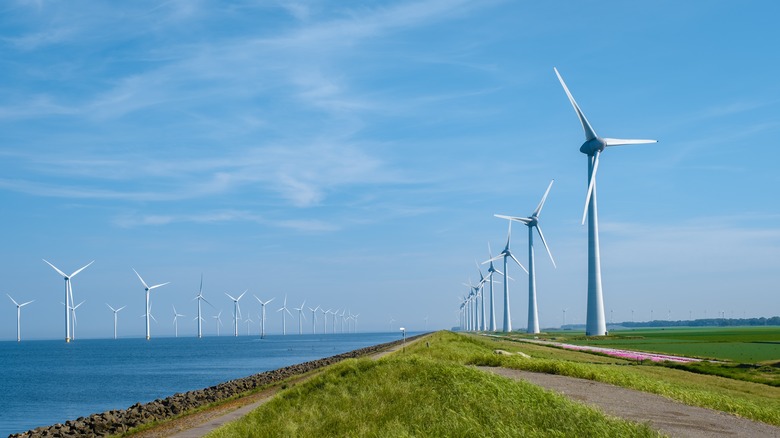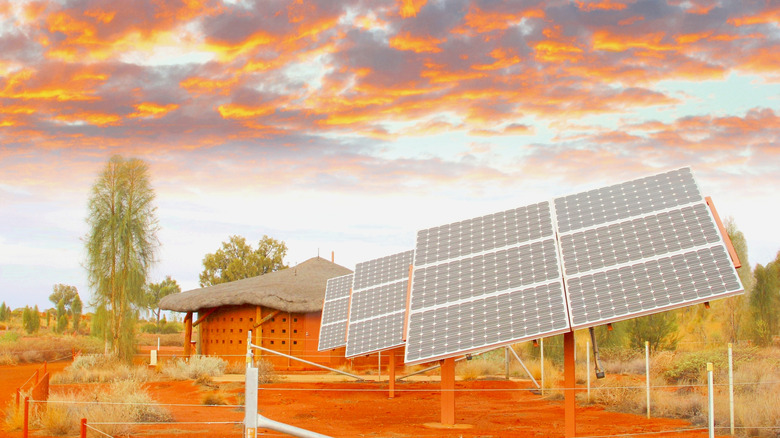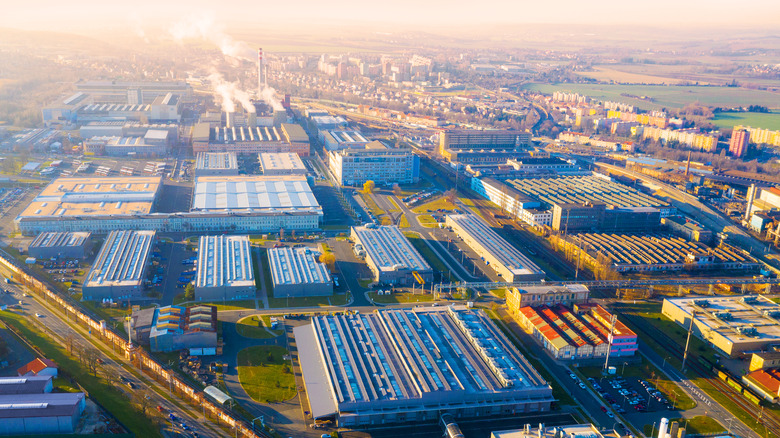The Astonishing Price Tag To Give The Globe Green Energy
Everyone on earth could have access to clean, cheap, reliable energy within a decade, but a hefty funding increase is neededfor that to be achieved. The claim is part of the United Nations' mission to ensure "clean energy" is available to everyone worldwide by 2030 and net-zero emissions are achieved globally by 2050. The plans themselves are part of the global roadmap the international organization revealed last year, which details how nations and businesses can work together to combat climate change and improve energy access.
Emerging economies are a key target for investment. According to the OECD, less developed areas of the world tend to have populations with limited access to electricity and tend to be reliant upon fossil fuels for income, energy, and employment. Investing in renewable technologies and infrastructure in places like Africa could both increase access to cheap power for millions of people while also drastically reducing global emissions. Despite the benefits on offer, under-developed regions tend to receive a small proportion of global funding. A U.N. report states that although Africa contains 82% of people living without access to energy, only 5% of the $300 billion invested in global energy capacity made its way there in 2019.
During a Ministerial-Level Thematic Forum held in June, Vera Songwe, Executive Secretary of ECA, announced that "capacity in Africa needs doubling by 2030 and quintupling by 2050." Songwe requested the private sector step up, calling for "a robust project pipeline" to attract private investment in green projects. International Energy Affairs Deputy Director Mary Warlick also noticed the lack of funding for green projects in developing nations. Warwick stated that IEA is working to remove bottlenecks in various countries and echoed Songwe's calls for private funding.
The figure is high, but the payoff may be higher
The United Nations believes sustainable energy targets that have been outlined for 2030 and 2050 can be achieved, but the plan will require fairly hefty financial contributions from countries and businesses. The organization says current funding levels must triple by the end of the decade, which would mean an annual figure of about $5 trillion, globally. According to the U.N. this increase in funding can be made possible through the "scaling up the use of blended finance mechanisms and multilateral portfolio guarantees." The organization also called for a decrease in regulations in an effort to attract more private investment, among other proposals.
Reports cited in the United Nations' statement suggest many of the technologies needed to reach sustainable energy targets already exist. The bulk of the increased funding would then likely be directed at scaling up the production and proliferation of these technologies instead of on research and development.
Although the figure quoted is large, the U.N. also believe a large payoff will be the result of the investment increase. The body says that if funding targets are met, everyone on Earth will have access to "clean, affordable energy" within a decade. Smaller figures are being thrown around, which could still have a huge impact. The report states that an investment of $35 billion could give 750 million people access to electricity, while $25 billion a year would make "clean cooking" an option for 2.6 billion people between now and 2030. According to the Clean Cooking Alliance, three billion people currently don't have the option of cooking on clean stoves with non-toxic fuels. This lack of access has an impact on both public health and the environment as a whole.
A difference can be made on a local level
Although organizations like the U.N. are looking at things on a global scale, the fight against climate change also has to happen on a local level. In a climate report published by the organization earlier this year, experts outlined that the goals of the Paris Agreement can still be met if everyone works on reducing carbon emissions. The majority of carbon dioxide that makes its way into the atmosphere originates in urban areas, so the report identified energy-efficient infrastructure projects as key priorities.
IPCC Chair Hoesung Lee is optimistic about what he has seen so far. He said, "I am encouraged by climate action being taken in many countries. There are policies, regulations and market instruments that are proving effective. If these are scaled up and applied more widely and equitably, they can support deep emissions reductions and stimulate innovation."
The report also claims the consequences that come with failing to meet climate targets could be great. They include "the underwater submersion of coastal cities, severe heatwaves and droughts, loss of coral, and mass extinction." Many leading scientists and climate experts believe that the worst effects of climate change can be avoided if the average global temperature rises by less than 1.5 degrees this century.


